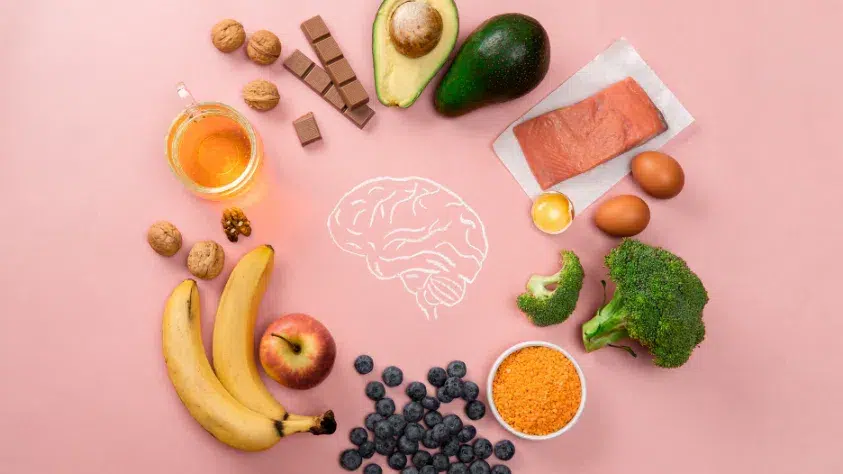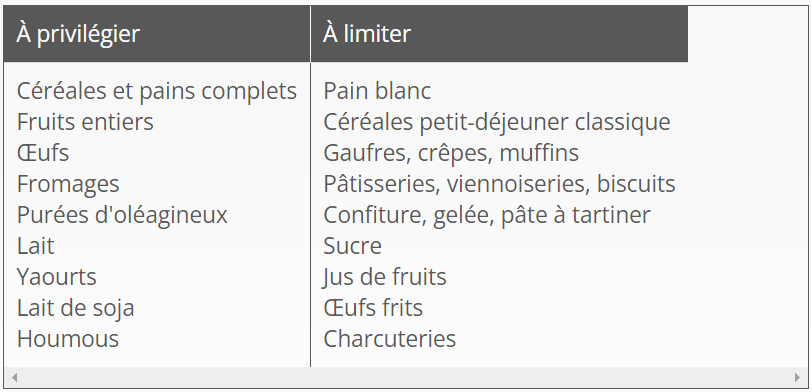
Brainfood: how to feed children’s brains?

What is brainfood ?
Brainfood, or cerebral nutrition, is based on the idea that certain foods have a positive impact on the Brain. Just as there is no magic pill to prevent cognitive decline, no all-powerful food can guarantee enhanced brain performance. There are, however, certain foods that we call “brainfood” because they provide the brain with the nutrients it needs most to function.
These foods boost the Brain and positively influence cognitive functions such as memory, concentration and information processing. In short, brainfood nourishes body and mind in harmony for optimal cognitive development. 🧠🍏
What are the benefits of brainfood for a child?
Improved cognitive functions
These foods boost memory and concentration. They nourish the Brain, contribute to healthy and robust neuronal growth, and therefore help our children to learn and reason correctly, and therefore develop their full intellectual potential.
Supporting cognitive development and mental health
These foods nourish brain cells and ensure their proper development and renewal, which is vital for healthy brain growth. This creates an optimal environment for our children to grow up healthy and intelligent.
Contributing to better performance
Children demonstrate more sustained attention in class and a better ability to assimilate lessons, thanks to a diet that nourishes their BRAINS.
Helps regulate mood and behavior
It boosts the immune system to keep our little ones in top form. Brainfood helps regulate mood and behavior, essential for maintaining a healthy mental and emotional balance.
Which foods to choose?
As is the case for other organs, the Brain needs nutrients to perform its functions optimally, and this applies to children and adults alike! This requires a healthy lifestyle: quality sleep, for example, but also a diet rich in a variety of nutrients. These nutrients support the growth and functioning of our children’s Brain, and help them to flourish both physically and mentally. 🥰
✏ Note : good news, chocolate is good for your brain too! When it’s made with more than 70% cocoa, the magnesium it contains helps you fight fatigue. But be careful not to overdo it!
Omega-3 fatty acids: these are essential for the development of brain cells. They are found in salmon, walnuts and chia seeds. These fatty acids play a role in neuronal plasticity, essential for learning and memory.
Antioxidants: these substances combat cell aging in the Brain. Colorful fruits and vegetables, such as blueberries, spinach and carrots are excellent sources of antioxidants.
Iron: a vital nutrient for oxygen transport in the blood and therefore for the Brain. It is found in red meats, spinach and lentils. Iron deficiency can lead to mental fatigue and reduced cognitive ability.
B vitamins: these are essential for mental health. Vitamin B12, for example, keeps nerves healthy. It is found in whole grains such as oats, buckwheat and quinoa, for example. But also in green vegetables, eggs and certain fish. Don’t panic: if you eat a balanced diet, your vitamin B needs should be covered.
Carbohydrates: these provide a stable source of energy for the Brain. Whole grains (pasta, brown rice, wholemeal bread) are ideal, as they raise blood sugar levels slowly. These foods therefore help to maintain a constant level of glucose in the blood, crucial for brain function, and to concentrate for longer.
These food groups, combined with adequate hydration and a balanced diet, contribute to healthy brain development in children, improving their concentration, memory and learning abilities.
Babaoo’Tip 💡
- To easily incorporate these foods into your children’s diet, think colorful, nutritious smoothies. Mix fruit, vegetables and a spoonful of chia seeds for a tasty, healthy snack!
Brainfood: foods to avoid
When talking about the importance of carbohydrates, it’s important to remember the distinction between carbohydrates and sugars. Refined sugars and high-sugar foods, such as sweets and sodas, should be consumed in moderation. These foods are known to increase the risk of obesity, but they also affect brain performance. They rapidly raise blood sugar levels, with a negative effect on the ability to concentrate. Variations in blood sugar are like a yo-yo, making us less alert and disrupting our attention… Let’s keep this in mind to stay on top of our cognitive game. 🧠
Saturated fats, often found in fast food and snacks, also complicate our Brain’s task by limiting the supply of oxygen and necessary nutrients. Let’s also mention the additives, colorings and preservatives in processed foods, which are not the best friends of our behavior and learning capacity. As much as possible, rely on natural foods to nurture your children’s well-being and growth.
If a deviation occurs, like a maxi chocolate egg offered by Grandma Renee, no worries! An occasional pleasure harmonizes perfectly with a balanced and fulfilled existence. 🍫
Examples of foods to favor or avoid at breakfast to promote memory and concentration:

Source: PasseportSante.
The Babaoo recap!
Brainfood improves memory, concentration and supports brain development in children. It also contributes to better school performance, boosts the immune system and helps regulate mood. Balanced nutrition is key to our children’s overall well-being. What’s more, let’s not forget that physical activity also plays a crucial role, bringing its own benefits for children’s brains by stimulating their cognitive development and well-being. 🧠💕
You may also be interested in these articles



